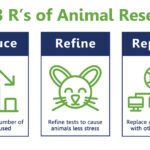Have you ever paused to ponder the impact of your choices on the welfare of animals? If you’ve found yourself concerned about their well-being and intrigued by the idea of advocating for their rights, then you may be considering a career in animal welfare. This sector is ripe with opportunities—but where do you begin? Navigating this field can seem daunting, especially given the myriad pathways and challenges that lie ahead.
This article aims to illuminate the various avenues for those passionate about animal welfare, offering insights into the most effective ways to contribute to this noble cause. The journey towards becoming an animal welfare advocate can be exciting yet complicated. Let’s explore how you can embark on this fulfilling path.
Understanding Animal Welfare: A Foundation
Before diving into career options, it is essential to grasp what animal welfare encompasses. The term refers not only to the treatment of animals but extends to their health, behavior, and environment. Understanding the Five Freedoms is pivotal for anyone entering this field:
- Freedom from hunger and thirst.
- Freedom from discomfort.
- Freedom from pain, injury, or disease.
- Freedom to express normal behavior.
- Freedom from fear and distress.
These principles serve as a guiding framework for animal advocates. An in-depth comprehension of these tenets will help you effectively navigate the complexities of animal welfare.
Educational Pathways
Education plays a significant role in equipping you for a successful career in animal welfare. Various degree programs cater to this field, ranging from animal science and veterinary medicine to environmental studies and public policy. Do you possess the inclination to delve into these academic realms?
If you prefer a more hands-on approach, vocational training may be beneficial. Programs in animal care, wildlife rehabilitation, or shelter management can provide practical skills necessary for working directly with animals. Undertaking internships or volunteer opportunities alongside these educational ventures enhances your learning and expands your professional network.
Additionally, online courses and certifications focused on specific aspects of animal welfare—such as humane education or legislation—can bolster your expertise. Continuous education is key; staying updated on the latest practices and research ensures you remain an informed advocate.
Identifying Your Niche
The realm of animal welfare is vast, comprising various sectors that you may wish to explore. Identifying a niche not only allows you to channel your passion but also strengthens your advocacy efforts. Here are some areas to consider:
- Rescue and rehabilitation: Work directly with animals in shelters, sanctuaries, or rehabilitation centers. This role demands compassion and resilience.
- Legislation and policy: Advocate for law reforms to protect animals, working with governmental and non-governmental organizations.
- Education and outreach: Develop programs to inform the public about animal welfare issues, engaging communities in positive action.
- Research and ethics: Investigate animal behavior and welfare standards, contributing to scientific knowledge that informs better practices.
Your unique interests, skills, and experiences will guide you toward the right niche. Personal passion plays a critical role in sustaining motivation, so choose wisely.
Volunteerism as a Catalyst
Volunteering serves as a powerful conduit for entering the animal welfare field. Many organizations rely heavily on volunteers to implement their missions. Engaging in volunteer work not only builds your resume but also provides invaluable insights into the operational dynamics of animal welfare organizations.
Consider reaching out to local shelters, wildlife rehabilitation centers, or even national organizations. Each experience will arm you with practical knowledge and, importantly, help you forge relationships within the community. As you immerse yourself in hands-on work, you may encounter new challenges. Will you rise to them, developing resilience that will aid you in your career?
Networking and Community Building
Networking is an indispensable element for anyone looking to succeed in animal welfare. Attending industry conferences, joining regional committees, or participating in local advocacy groups can assist you in building relationships with fellow activists and professionals.
Many organizations have mentorship programs in which experienced advocates guide newcomers. These resources are not only enlightening but can foster a sense of community. Such connections can lead to job opportunities and collaborative projects that enhance your impact.
Harness social media platforms to follow influential animal welfare organizations and advocates. Engaging with these communities can keep you informed and encouraged, showcasing that you are not alone in your endeavor.
Confronting Challenges
It is crucial to remember that setbacks are part of any worthwhile pursuit. How will you respond to adversity? Maintaining a solution-oriented mindset can foster a healthier perspective, helping you remain focused on the bigger picture.
Conclusion: The Journey Begins
So, are you ready to take that first step? The world of animal welfare awaits your passion and determination. Whether you find your calling in rescue, legislation, education, or research, your journey towards making a difference starts now.





